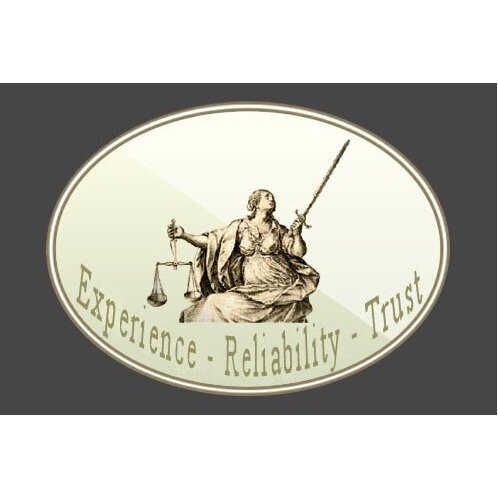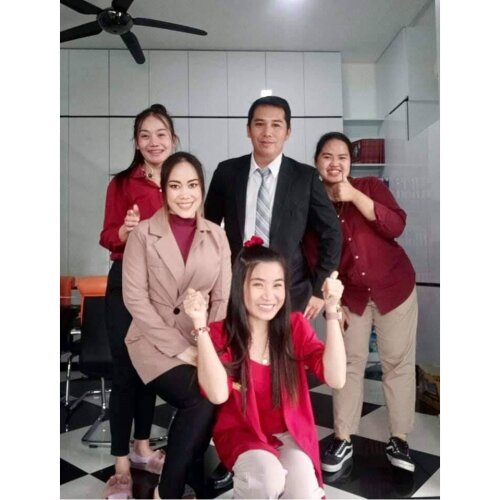ทนายความ ทรัสต์ ที่ดีที่สุดใน พัทยา
แบ่งปันความต้องการของคุณกับเรา รับการติดต่อจากสำนักงานกฎหมาย
ฟรี ใช้เวลา 2 นาที
รายชื่อทนายความที่ดีที่สุดใน พัทยา, ประเทศไทย
1. เกี่ยวกับกฎหมายทรัสต์ในพัทยา, ประเทศไทย
ทรัสต์เป็นเครื่องมือบริหารทรัพย์สินที่ช่วยให้ผู้เช่าเจ้าของทรัสต์ (ผู้ทรัสต์) กำหนดเงื่อนไขการใช้ทรัพย์สินโดยผู้รับทรัสต์ (ผู้รับทรัสต์) ตามที่ระบุไว้ในสัญญาทรัสต์
ในพัทยา ผู้ใช้งานมักเลือกทรัสต์เพื่อบริหารมรดก จัดการทรัพย์สินร่วมของครอบครัว หรือวางแผนอสังหาริมทรัพย์ที่มักมีการสับเปลี่ยนผู้ถือครองระหว่างคนไทยและชาวต่างชาติ
กฎหมายทรัสต์ในประเทศไทยส่วนใหญ่ผูกพันกับกรอบกฎหมายแพ่งและพาณิชย์และนโยบายทรัสต์ที่มีการปรับปรุงในระยะหลัง เพื่อรองรับกรณีการถ่ายโอนทรัพย์สิน การบริหาร และการมอบหมายสิทธิประโยชน์
2. ทำไมคุณอาจต้องการทนายความ
การมีทนายความช่วยออกแบบทรัสต์จะลดความเสี่ยงจากข้อพิพาทและข้อผิดพลาดด้านเอกสาร
ตัวอย่างเฉพาะของพัทยา เช่น พนักงานโรงแรมครอบครัวต้องการให้ทรัพย์สินของผู้ป่วยจุดประสงค์ไว้เพื่อการดูแลระยะยาว โดยไม่ถูกปันส่วนเองในภายหลัง
กรณีชาวต่างชาติที่มีบ้านพักหรือคอนโดในพัทยา ต้องการวางแผนการถือครองเพื่อหลีกเลี่ยงข้อจำกัดการถือครองที่ดินของชาวต่างชาติ
กรณีครอบครัวที่ดำเนินธุรกิจท่องเที่ยวในพัทยา ต้องการโครงสร้างทรัสต์เพื่อสืบทอดกิจการให้กับผู้สืบทอดโดยไม่กระทบต่อมรดกส่วนตัว
กรณีผู้สูงอายุอาศัยอยู่ในพัทยา ต้องการทรัสต์เพื่อดูแลค่าใช้จ่ายสุขภาพและการดูแลระยะยาวโดยมีผู้สืบทอดชัดเจน
กรณีผู้มีทรัพย์สินหลายแห่งต้องการรวมการดูแลภายใต้ทรัสต์เดียวเพื่อความง่ายในการบริหารจัดการ
3. ภาพรวมกฎหมายท้องถิ่น
พระราชบัญญัติทรัสต์ พ.ศ. 2562 (Trusts Act B.E. 2562) เป็นกรอบสำคัญสำหรับการสร้างและบริหารทรัสต์ในประเทศไทย โดยกำหนดบทบาทของผู้ทรัสต์ ผู้รับทรัสต์ และหลักการบริหารทรัสต์
ประมวลกฎหมายแพ่งและพาณิชย์ พ.ศ. 2467 เป็นกรอบหลักที่รองรับแนวคิดทรัสต์ผ่านสัญญาและการถือครองทรัพย์ในกรอบกฎหมายแพ่ง
กฎหมายคุ้มครองข้อมูลส่วนบุคคล พ.ศ. 2562 (PDPA) มีผลต่อการบริหารข้อมูลส่วนบุคคลของผู้มีส่วนได้เสียในทรัสต์ และข้อกำหนดในการประมวลผลข้อมูล
สำหรับข้อมูลภายนอก ทรัสต์ที่เกี่ยวข้องกับทรัพย์สินในพัทยาจึงมักต้องสอดคล้องกับกฎหมายที่เกี่ยวข้องกับการถือครองที่ดินและการเคลื่อนย้ายทรัพย์สิน
อ้างอิงจากแหล่งข้อมูลทางกฎหมายไทย: พระราชบัญญัติทรัสต์ พ.ศ. 2562 และประมวลกฎหมายแพ่งและพาณิชย์ สำหรับรายละเอียดเพิ่มเติมดูที่เว็บไซต์ทางการ
เว็บไซต์ทางการที่เป็นแหล่งข้อมูลเพื่อการยืนยันแนวทางนี้มีจากหน่วยงานรัฐบาลไทย เช่น กระทรวงยุติธรรม และสำนักงานกฤษฎีกา
ข้อมูลเพิ่มเติมและบทบัญญัติทางกฎหมายสามารถตรวจสอบได้ที่เว็บทางการของกระทรวงยุติธรรม (moj.go.th) และสำนักงานคุ้มครองข้อมูลส่วนบุคคล (PDPA)
4. คำถามที่พบบ่อย
อะไรคือทรัสต์และทำไมพัทยาจึงนิยมใช้งาน?
ทรัสต์คือโครงสร้างทางกฎหมายเพื่อบริหารทรัพย์สิน ตามเงื่อนไขที่กำหนด ผู้ทรัสต์มอบอำนาจให้ผู้รับทรัสต์ดูแลทรัพย์สินแทนผู้มีส่วนได้เสีย
ในพัทยา ผู้ครอบครองบ้าน คอนโด หรือทรัพย์สินอื่นๆ ใช้ทรัสต์เพื่อป้องกันมรดก รับรองการดูแลครอบครัว และลดความยุ่งยากในการโอนทรัพย์สิน
ทรัสต์ยังช่วยให้การบริหารมรดกมีความชัดเจน และลดความซับซ้อนด้านกฎหมายหลังการเสียชีวิต
อย่างไรจึงสร้างทรัสต์ได้อย่างถูกต้องในประเทศไทย?
คุณต้องมีทนายความที่ชำนาญเรื่องทรัสต์เพื่อออกแบบเอกสารทรัสต์อย่างถูกต้อง
ต้องระบุเงื่อนไขการโอนทรัพย์สินและสิทธิหน้าที่ของผู้รับทรัสต์อย่างชัดเจน
รวมถึงการกำหนดระยะเวลาของทรัสต์และวิธีจัดการกับข้อพิพาทที่อาจเกิดขึ้น
เมื่อไหร่ควรใช้ทรัสต์เพื่อการวางแผนมรดก?
หากคุณมีทรัพย์สินหลายแห่งหรือเป็นครอบครัวที่มีการแบ่งมรดกซับซ้อน
และต้องการให้ทรัพย์สินสืบทอดตามเงื่อนไขที่กำหนดล่วงหน้า
ทรัสต์สามารถช่วยลดค่าใช้จ่ายศาลและเวลาในการบังคับใช้มรดก
ที่ไหนควรปรึกษาทนายทรัสต์ในพัทยา?
แนะนำปรึกษาทนายในพื้นที่พัทยาเพื่อความเข้าใจบริบทท้องถิ่นและข้อกำหนดพื้นที่
ทนายจะช่วยประเมินโครงสร้างทรัสต์ที่เหมาะสมกับสถานการณ์ครอบครัวและทรัพย์สินของคุณ
คุณสามารถเริ่มได้ด้วยการนัดพบเพื่อประเมินทรัพย์สินและเป้าหมายการวางแผน
ทำไมต้องตรวจสอบเงื่อนไขทรัสต์ซ้ำก่อนลงนาม?
เพื่อป้องกันข้อพิพาทระหว่างผู้สืบทอดและผู้ทรัสต์
เพื่อให้ทรัสต์สอดคล้องกับกฎหมายล่าสุดและสถานการณ์ทางการเงินของครอบครัว
การตรวจสอบซ้ำช่วยให้ทรัสต์มีการบังคับใช้อย่างราบรื่นในระยะยาว
สามารถทำทรัสต์แบบปรับเปลี่ยนได้หรือไม่?
ได้ในบางกรณีตามเงื่อนไขที่ระบุไว้ในเอกสารทรัสต์
ทรัสต์บางประเภทอนุญาตให้มีการแก้ไขหรือยกเลิกตามสถานการณ์ที่เปลี่ยนแปลง
คุณควรปรึกษาทนายเกี่ยวกับเงื่อนไขเหล่านี้ตั้งแต่ต้น
ควรทราบค่าใช้จ่ายในการจัดตั้งทรัสต์อย่างไร?
ค่าใช้จ่ายรวมประกอบด้วยค่าทนายความ ค่าจำลองเอกสาร และค่าใช้จ่ายในการบันทึกทรัสต์
ค่าใช้จ่ายอาจแตกต่างกันตามความซับซ้อนของทรัพย์สินและเงื่อนไขทรัสต์
ควรขอประมาณการค่าใช้จ่ายล่วงหน้าจากทนายเพื่อเปรียบเทียบ
ระยะเวลาการจัดตั้งทรัสต์มักใช้เวลานานแค่ไหน?
การนัดปรึกษาและร่างเอกสารมักใช้ 1-3 สัปดาห์
หากมีการตรวจทานหลายรอบหรือดำเนินการบันทึกเพิ่มเติม อาจใช้เวลาถึง 1 เดือน
กรณีซับซ้อนด้านทรัพย์สินหรือต่างประเทศ อาจยาวนานขึ้น
ฉันต้องการทรัสต์เพื่อครอบครัวหรือธุรกิจในพัทยา ควรเลือกอะไร?
หากเป็นครอบครัว เลือกทรัสต์ที่เน้นการสืบทอดและการดูแลคนในครอบครัว
หากเป็นธุรกิจ เลือกทรัสต์ที่สามารถรวมการบริหารทรัพย์สินและกิจการ
ปรึกษาทนายเพื่อออกแบบโครงสร้างที่สอดคล้องกับวัตถุประสงค์และกฎหมาย
ทรัสต์กับการถือครองที่ดินในพัทยาอย่างไร?
ชาวต่างชาติยังไม่สามารถถือครองที่ดินโดยตรงในประเทศไทย
การสร้างทรัสต์ที่มีไทยเป็นผู้ทรัสต์หรือใช้วิธีโครงสร้างทางกฎหมายอื่นๆ อาจช่วยบริหารการถือครองได้ในทางกฎหมาย
ควรปรึกษาทนายเพื่อหาวิธีที่ถูกต้องและปลอดภัย
ทรัสต์กับมรดกของผู้ประกอบการท่องเที่ยวในพัทยา?
ทรัสต์ช่วยกำหนดการสืบทอดกิจการและการแบ่งมรดกอย่างชัดเจน
สามารถตั้งเงื่อนไขให้ผู้รับทรัสต์บริหารกิจการต่อไปจนกว่าจะถึงช่วงเวลาที่กำหนด
ควรมีทนายช่วยออกแบบรายละเอียดอย่างรัดกุม
นโยบายข้อมูลส่วนบุคคลมีผลต่อทรัสต์อย่างไร?
PDPA กำหนดการประมวลผลข้อมูลผู้มีส่วนได้เสียในทรัสต์
คุณต้องหาข้อกำหนดในการคุ้มครองข้อมูลและการเก็บรักษาข้อมูล
ทนายจะช่วยปรับกระบวนการให้สอดคล้องกับ PDPA
ฉันควรตรวจสอบทรัสต์อย่างไรเมื่อเปลี่ยนผู้ดูแล?
ตรวจสอบเงื่อนไขการถ่ายโอนสิทธิ์และคุณสมบัติผู้รับทรัสต์
ปรับเอกสารทรัสต์เพื่อสะท้อนการเปลี่ยนแปลง
ปรึกษาทนายเพื่อตรวจสอบความถูกต้องและบังคับใช้อย่างถูกต้อง
5. ทรัพยากรเพิ่มเติม
- กระทรวงยุติธรรมแห่งประเทศไทย - ข้อมูลและนโยบายที่เกี่ยวข้องกับทรัสต์และทรัพย์สิน: https://www.moj.go.th
- สำนักงานคณะกรรมการกฤษฎีกา - ข้อกฎหมายและพระราชบัญญัติต่างๆ ที่เกี่ยวข้อง: https://www.krisdika.go.th
- ราชกิจจานุเบกษาออนไลน์ - แหล่งค้นหาพระราชบัญญัติตามประกาศราชกิจจาฯ: https://www.ratchakitcha.soc.go.th
6. ขั้นตอนถัดไป
- กำหนดวัตถุประสงค์ทรัสต์ในพัทยา เช่น การดูแลครอบครัว การสืบทอดกิจการ หรือการบริหารทรัพย์สิน
- เก็บข้อมูลทรัพย์สินที่เกี่ยวข้องทั้งหมด ได้แก่ บ้าน ผ่อนคอนโด เงินลงทุน และทรัพย์สินอื่นๆ
- ค้นหาทนายความทรัสต์ในพัทยาที่มีประสบการณ์ด้านครอบครัวและทรัพย์สินระหว่างประเทศ
- นัดพบเพื่อปรึกษาแนวคิดทรัสต์และข้อกำหนดทางกฎหมายของคุณ
- ขอประมาณการค่าใช้จ่าย และระยะเวลาการจัดตั้งทรัสต์
- ออกแบบโครงสร้างทรัสต์ร่วมกับทนายความ และตรวจทานร่างเอกสารอย่างละเอียด
- ยื่นเอกสารและจ่ายค่าธรรมเนียม พร้อมบันทึกทรัสต์ตามข้อกำหนดทางราชการ
Lawzana ช่วยคุณค้นหาทนายความและสำนักงานกฎหมายที่ดีที่สุด ใน พัทยา ผ่านรายชื่อผู้เชี่ยวชาญด้านกฎหมายที่มีคุณสมบัติเหมาะสมที่คัดสรรและตรวจสอบล่วงหน้า แพลตฟอร์มของเรานำเสนอการจัดอันดับและโปรไฟล์โดยละเอียดของทนายความและสำนักงานกฎหมาย ช่วยให้คุณเปรียบเทียบตามสาขากฎหมาย รวมถึง ทรัสต์ ประสบการณ์ และความคิดเห็นของลูกค้า
แต่ละโปรไฟล์ประกอบด้วยคำอธิบายเกี่ยวกับสาขากฎหมายของสำนักงาน รีวิวจากลูกค้า สมาชิกในทีมและหุ้นส่วน ปีที่ก่อตั้ง ภาษาที่พูด ที่ตั้งสำนักงาน ข้อมูลการติดต่อ การมีตัวตนบนโซเชียลมีเดีย และบทความหรือแหล่งข้อมูลที่เผยแพร่ สำนักงานส่วนใหญ่บนแพลตฟอร์มของเราพูดภาษาอังกฤษและมีประสบการณ์ทั้งในเรื่องกฎหมายท้องถิ่นและระหว่างประเทศ
ขอใบเสนอราคาจากสำนักงานกฎหมายชั้นนำ ใน พัทยา, ประเทศไทย — รวดเร็ว ปลอดภัย และไม่ยุ่งยาก
ข้อจำกัดความรับผิดชอบ:
ข้อมูลที่ให้ไว้ในหน้านี้มีวัตถุประสงค์เพื่อเป็นข้อมูลทั่วไปเท่านั้นและไม่ถือเป็นคำแนะนำทางกฎหมาย แม้ว่าเราจะพยายามตรวจสอบความถูกต้องและความเกี่ยวข้องของเนื้อหา แต่ข้อมูลทางกฎหมายอาจเปลี่ยนแปลงได้ตามกาลเวลา และการตีความกฎหมายอาจแตกต่างกันไป คุณควรปรึกษาผู้เชี่ยวชาญด้านกฎหมายที่มีคุณสมบัติเหมาะสมเพื่อขอคำแนะนำเฉพาะสำหรับสถานการณ์ของคุณเสมอ
เราปฏิเสธความรับผิดทั้งหมดสำหรับการกระทำที่ทำหรือไม่ทำตามเนื้อหาในหน้านี้ หากคุณเชื่อว่าข้อมูลใดไม่ถูกต้องหรือล้าสมัย โปรด contact us และเราจะตรวจสอบและแก้ไขตามความเหมาะสม













